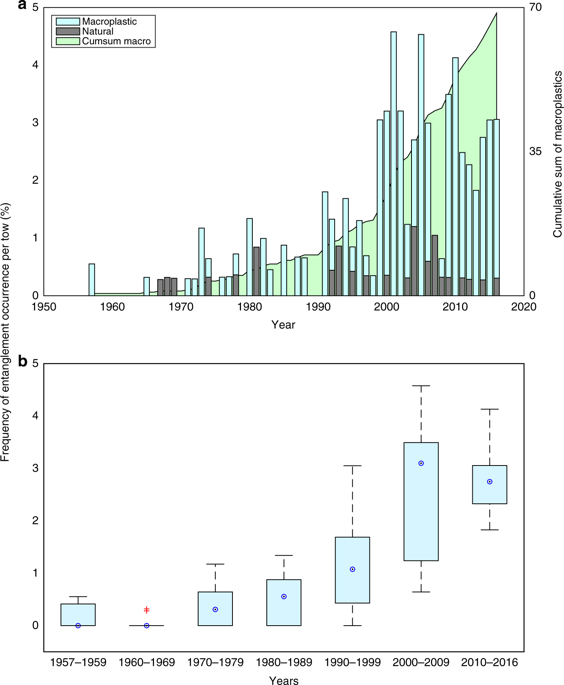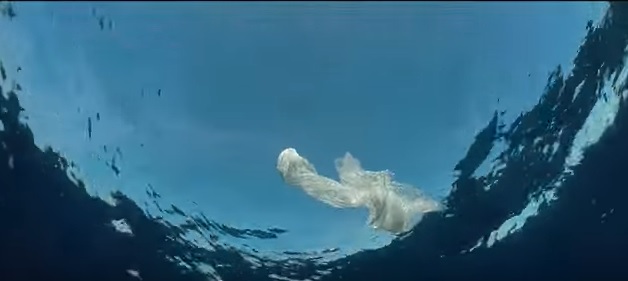A study published in Nature Communications revealed that the increase in large plastic pollution has been happening since 1957, with a significant increase since the 1990s. The study on marine plastic wasn’t the teams priority, as they were in the beginning studying plankton.
However, as study co-author Clare Ostle, a research scientist at the Marine Biological Association in the UK commented ‘This happened through chatting with the guys that do the metal work to fix the equipment and the volunteers working to tow the recorders, they were talking about how this plastic kept getting tangled up in the equipment.‘
Specifically, the study highlights that there’s been a significant increase in macroplastic pollution, such as entire plastic bags, plastic fishing gear and other items.
There are very few historical records of ocean plastic pollution, Mrs Clare Ostle, so the researchers used the incidents to investigate exactly how much plastic pollution there was and how often these entanglements happened.
To better understand the threat of plastics’ pollution, Mrs Ostle and her team researched 60 years worth of ocean data covering over 6.5 million nautical miles in the North Atlantic and adjacent seas. They found that plastic entanglement on the equipment used to measure plankton increased by about 10 times from 2000 on.

As Mrs Ostle noted
We have known that plastic production has increased, and although there are a number of studies that have shown increased concentrations of plastic up to the 1990s, these studies have not been able to demonstrate the expected increase in plastics in open ocean surface waters.
In the meantime, the plastics will comprise 15% of GHG emissions by 2050, although all of the world’s forms of transportation now account for 15% of emissions.
This is long-lasting damage. It is such an important problem to solve, but the only way to do that is to stop putting it in the ocean.
… noted Jacqueline Savitz, who did not work on the new studies but serves as chief policy officer for North America for Oceana, a nonpartisan nonprofit dedicated to protecting and restoring the oceans.
She continued that plastic is a cheap product to make, but it comes at a high price to our environment.
Concluding, for more information on the study you may click here.






























































